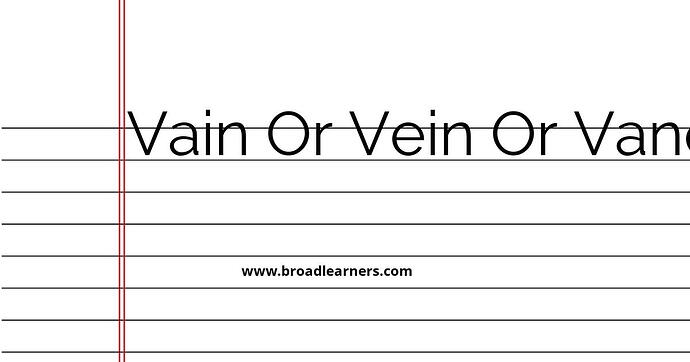'Vain', 'vein', and 'vane' are commonly confused words in English grammar. Understanding the difference between 'vain', 'vein', and 'vane' is important to use them correctly in written and spoken English.
'Vain' is an adjective that means having an excessively high opinion of oneself, or being excessively proud or concerned about one's appearance or achievements.
'Vein' is a noun that has multiple meanings. It can refer to a blood vessel that carries blood back to the heart, a streak or marking in a material such as marble or wood, or a distinctive style or manner of expression.
'Vane' is a noun that refers to a flat or curved object that is moved by the wind or by fluid pressure and indicates the direction from which it blows.
Let's take a closer look at the meanings and usage of 'vain', 'vein', and 'vane'.
| 'Vain' | 'Vein' | 'Vane' |
|---|---|---|
| The word 'vain' is used to describe someone who has an excessively high opinion of themselves or is overly concerned about their appearance or achievements. | The word 'vein' is used to refer to a blood vessel, a streak or marking in a material, or a distinctive style or manner of expression. | The word 'vane' is used to refer to a flat or curved object that indicates the direction of the wind. |
|
|
|
To remember the difference between 'vain', 'vein', and 'vane', it can be helpful to associate 'vain' with self-centeredness or excessive pride, 'vein' with blood vessels or streaks in materials, and 'vane' with wind direction indicators.
Here are some examples of correct usage:
- She is so vain that she spends hours in front of the mirror.
- The doctor found a blocked vein in his patient's arm.
- The painting had beautiful veins of color running through it.
- The weather vane on top of the building shows the wind direction.
Remembering the correct usage of 'vain', 'vein', and 'vane' will improve your grammar and communication skills.
